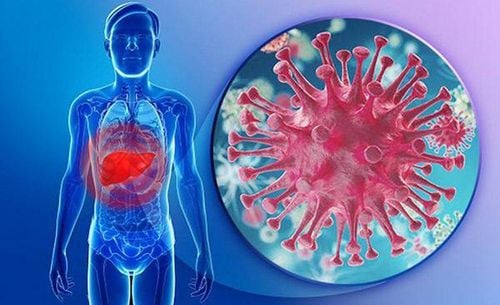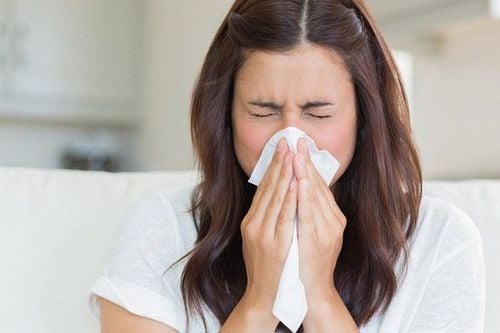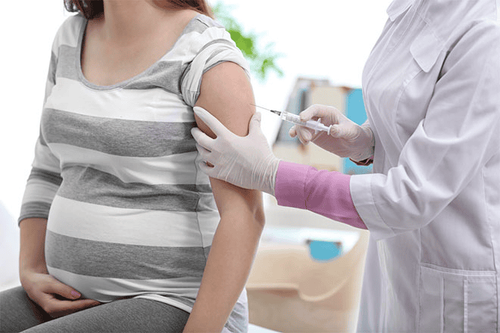This is an automatically translated article.
Getting vaccinated on time will not only protect your child, but anyone around who has a weakened immune system. In the United States, parents rely on the U.S. Centers for Disease Control and Prevention's (U.S. CDC)'s trusted source to decide what vaccines and when to get their kids vaccinated.Here are 6 reasons why parents should stick to the vaccination schedule recommended by CDC (USA).
1. Why is it important to vaccinate on time?
The vaccination schedule recommended by the CDC is safe and effective in protecting your baby from pathogens, including dangerous diseases. The best doctors, public health experts, and scientists design immunization schedules to ensure the safest and most effective, based on how a child's immune system responds to vaccines in different ages and the child's likelihood of being exposed to a particular pathogen. This ensures children are protected from 14 potentially serious illnesses at the right time when they are most vulnerable.2. Why is it important to vaccinate in full doses?
Taking children to be vaccinated fully and on time with age-appropriate vaccines will give the child's body a better resistance to prevent disease-causing agents. In addition, the inadequate dose of vaccine also causes an insufficient amount of antigens to stimulate the body to create adequate immunity, so for optimal disease prevention, parents need to take their children away. booster or booster shots of vaccines with indications for booster shots as recommended by the Expanded Childhood Immunization Program.
Đưa trẻ đi tiêm ngừa đầy đủ, đúng lịch các loại vắc-xin phù hợp theo lứa tuổi sẽ tạo cho cơ thể trẻ một sức đề kháng tốt
3. Prevention of complications
Improperly scheduled vaccinations can make your child more susceptible to illness and can lead to serious complications. Vaccines are like a helmet for children, protecting them from serious injuries. The younger the child, the higher the risk of serious complications from infections. For example, in adults, whooping cough symptoms can last for several weeks, but in children under the age of one, pertussis is very serious and even fatal.4. Early protection of children from diseases
It is best to get vaccinated before your child is exposed to pathogens. Similar to how you fasten your child's seat belt before the wheelchair rolls off to prevent possible unfortunate consequences while on the road, vaccines work in a similar way. If you wait until you think your child may be exposed to a pathogen before starting care or treatment, or during an outbreak, there may not be enough time for the vaccine to take effect. maximum effect or not producing enough antibodies to protect the body. That's why immunization schedulers insist on when children should be vaccinated. The immunization schedule is intended to recommend that parents get their children vaccinated on time so that the child is provided with immunity early in life, before the child is potentially exposed to life-threatening diseases.5. The best way to protect
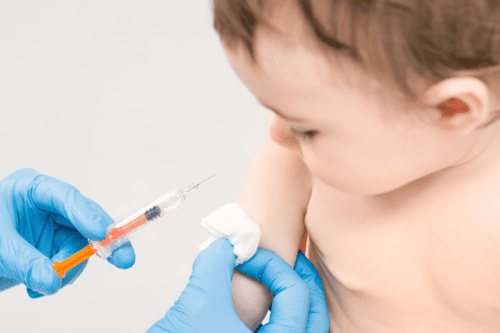
Các mũi tiêm cơ bản đầu tiên giúp trẻ khả năng phòng ngừa một hoặc nhiều bệnh lý trong thời kỳ thơ ấu
6. Long-lasting protection
When you get the whooping cough and flu vaccines during pregnancy, you can pass on a certain amount of antibodies that are enough to protect your unborn baby before birth. However, you can only protect your baby from diseases to which you already have immunity and can only protect him for the first few months.Besides, maternal antibodies are passed on to the baby through breastfeeding but are not enough to protect the baby in the long term. Breast milk is the safest and best source of nutrition, providing antibodies and antibacterial substances to help prevent diseases, so within the first 6 months of life, babies rarely get sick. After 6 months of age, babies begin to eat solid foods and are exposed to many risks of disease, while the body's immune system has not yet matured. Besides, when babies are breastfed less, the amount of antibodies passed from mother to child also decreases. And breast milk cannot protect babies from all diseases, and even for exclusively breastfed babies, vaccines are the most effective way to prevent many diseases. That's why it's so important to follow the immunization schedule to ensure your child's immune system gets the help it needs and provide long-term protection against preventable diseases.
7. Limit the spread of disease
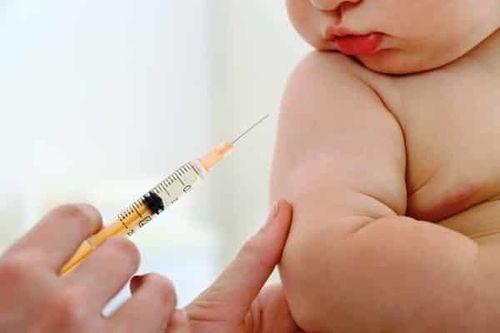
Tiêm vắc-xin cho trẻ đúng thời điểm không chỉ bảo vệ con bạn mà bạn đã giúp bảo vệ bạn bè, gia đình và người dân xung quanh
Vinmec International General Hospital uses a source of high quality vaccines, of clear origin, suitable for the age to be vaccinated, ensuring safety from registration, storage to use. Before vaccination, all customers are screened before vaccination with specialist doctors to ensure the best health when vaccinated. 100% of vaccinated customers are monitored and re-evaluated before leaving. In particular, the post-vaccination monitoring room is fully equipped with emergency facilities; the team of doctors - nurses are trained in anaphylaxis emergency management to ensure timely and correct treatment when an incident occurs.
Please dial HOTLINE for more information or register for an appointment HERE. Download MyVinmec app to make appointments faster and to manage your bookings easily.
Reference source: Cdc.gov



